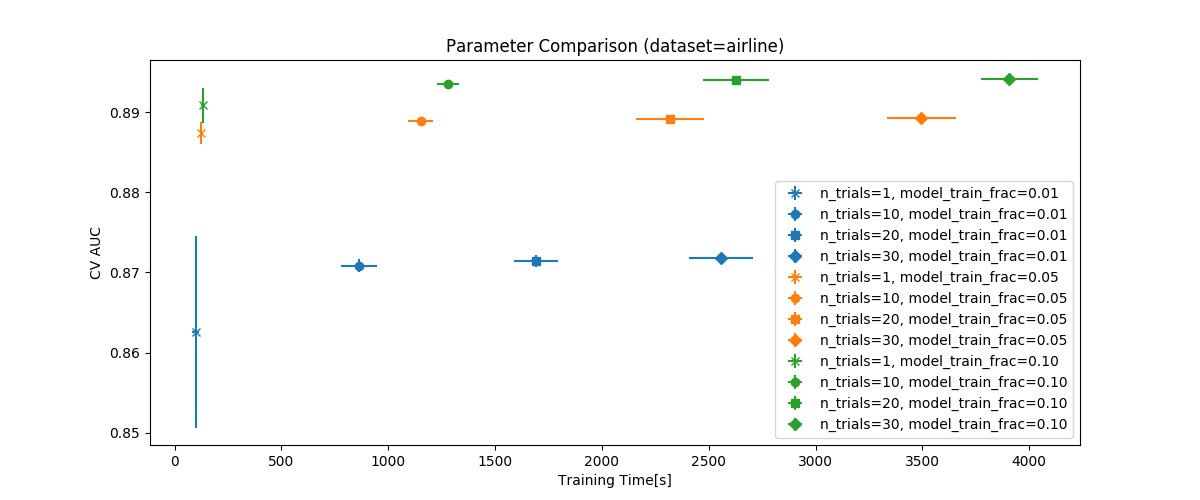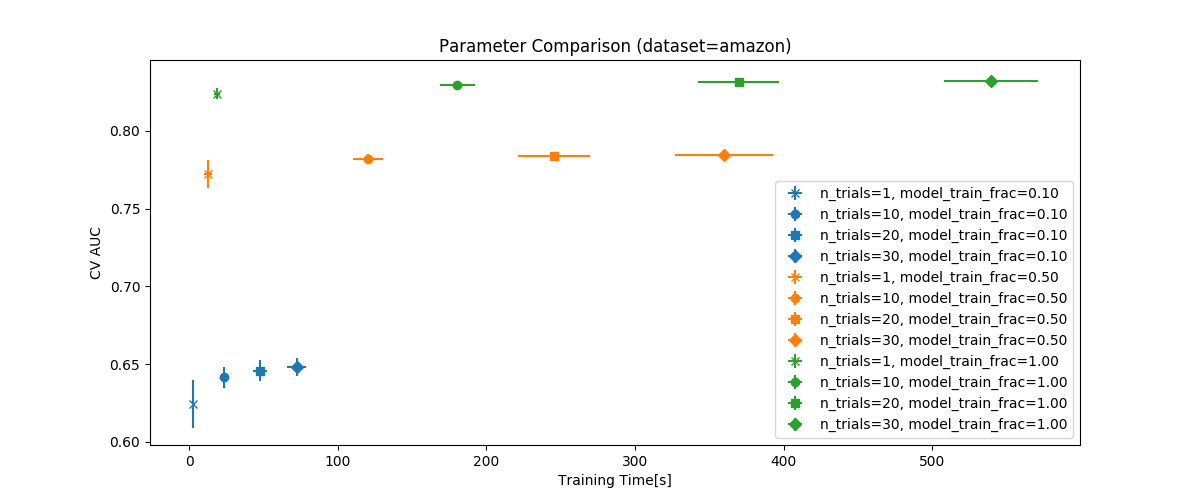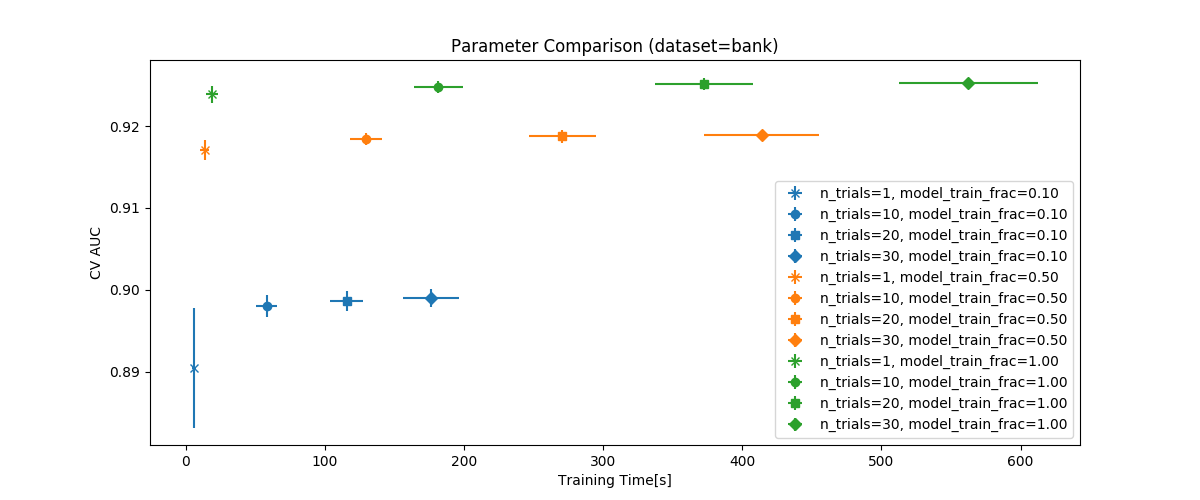This is an experimental Python package that reimplements AutoGBT using LightGBM and Optuna. AutoGBT is an automatically tuned machine learning classifier which won the first prize at NeurIPS'18 AutoML Challenge. AutoGBT has the following features:
- Automatic Hyperparameter Tuning: the hyperparameters of LightGBM are automatically optimized,
- Automatic Feature Engineering: simple feature engineering is applied for categorical and datetime features, and
- Automatic Sampling: data rows are sampled for handling imbalanced and large datasets.
This implementation has the following differences from original AutoGBT:
- This implementation uses Optuna for the hyperparameter tuning of LightGBM instead of Hyperopt,
- it optimizes k-fold cross-validation AUC score, and
- it equips simplified scikit-learn-like API interface.
$ pip install git+https://github.com/pfnet-research/autogbt-alt.git
or
$ pip install git+ssh://git@github.com/pfnet-research/autogbt-alt.git
from sklearn.datasets import load_breast_cancer
from sklearn.model_selection import train_test_split
from sklearn.metrics import roc_auc_score
from autogbt import AutoGBTClassifier
X, y = load_breast_cancer(return_X_y=True)
train_X, valid_X, train_y, valid_y = train_test_split(X, y, test_size=0.1)
model = AutoGBTClassifier()
model.fit(train_X, train_y)
print('valid AUC: %.3f' % (roc_auc_score(valid_y, model.predict(valid_X))))
print('CV AUC: %.3f' % (model.best_score))from autogbt import Preprocessor
preprocessor = Preprocessor(train_frac=0.5, test_frac=0.5)
train_X, valid_X, train_y = preprocessor.transform(train_X, valid_X, train_y)from autogbt import TrainDataSampler
sampler = TrainDataSampler(train_frac=0.5, valid_frac=0.5)
model = AutoGBTClassifier(sampler=sampler)
model.fit(train_X, train_y)
model.predict(test_X)Please see benchmark directory for the details.
The default values are used for all hyperparameters of AutoGBT, XGBoost and LightGBM.
| model | duration[s] | CV AUC |
|---|---|---|
| AutoGBT | 6515.254±340.231 | 0.900±0.001 |
| Xgboost | 78.561±7.265 | 0.872±0.000 |
| LightGBM | 34.000±2.285 | 0.891±0.000 |
| model | duration[s] | CV AUC |
|---|---|---|
| AutoGBT | 359.834±29.188 | 0.832±0.002 |
| Xgboost | 2.558±0.661 | 0.749±0.002 |
| LightGBM | 1.789±0.165 | 0.834±0.002 |
| model | duration[s] | CV AUC |
|---|---|---|
| AutoGBT | 20322.601±676.702 | 0.744±0.000 |
| Xgboost | OoM | OoM |
| LightGBM | OoM | OoM |
| model | duration[s] | CV AUC |
|---|---|---|
| AutoGBT | 372.090±32.857 | 0.925±0.001 |
| Xgboost | 2.683±0.204 | 0.912±0.001 |
| LightGBM | 2.406±0.236 | 0.927±0.001 |
Performance on various train_frac and n_trials parameters
$ ./test.sh
Jobin Wilson and Amit Kumar Meher and Bivin Vinodkumar Bindu and Manoj Sharma and Vishakha Pareek and Santanu Chaudhury and Brejesh Lall, AutoGBT: Automatically Optimized Gradient Boosting Trees for Classifying Large Volume High Cardinality Data Streams under Concept-Drift, 2018, https://github.com/flytxtds/AutoGBT.


